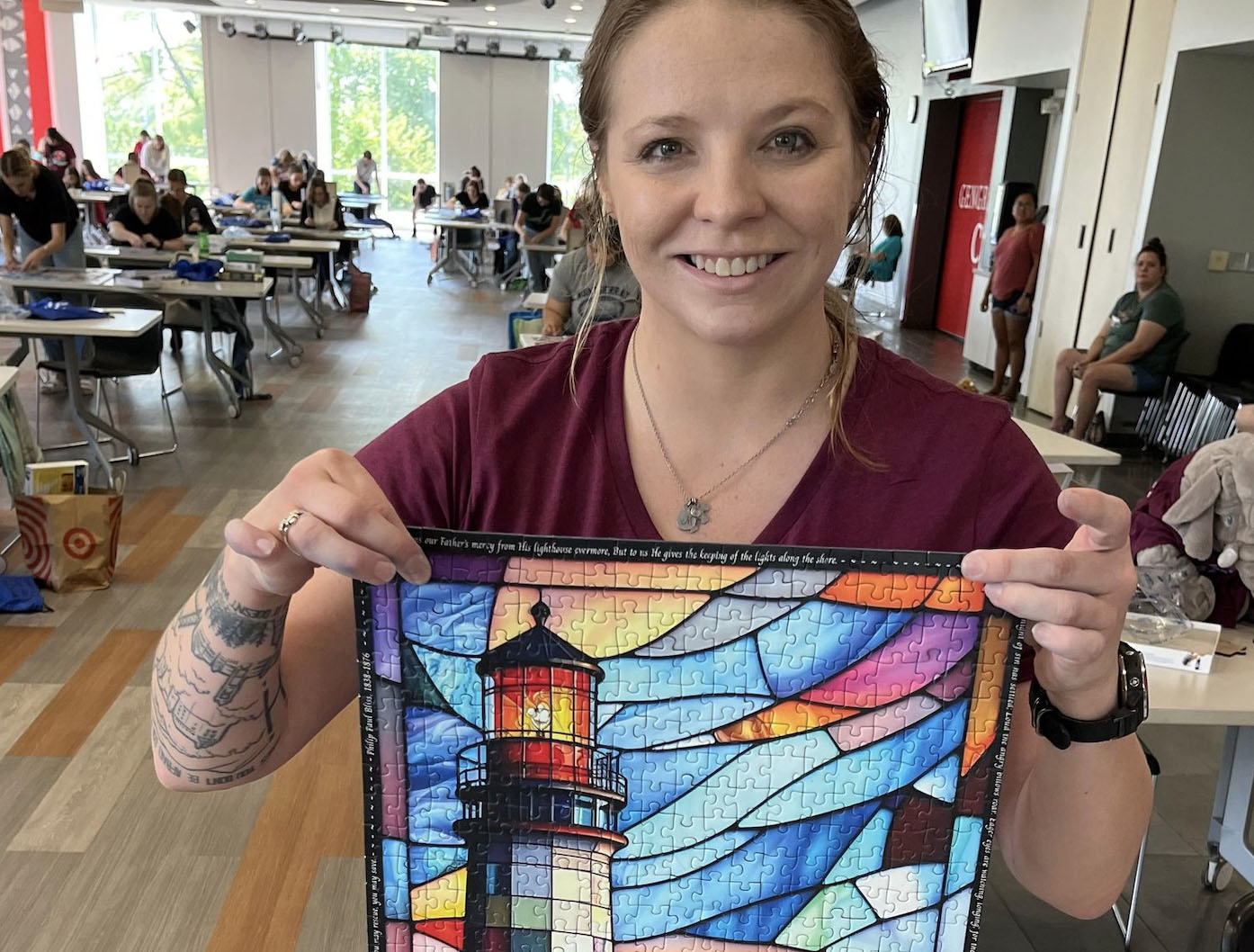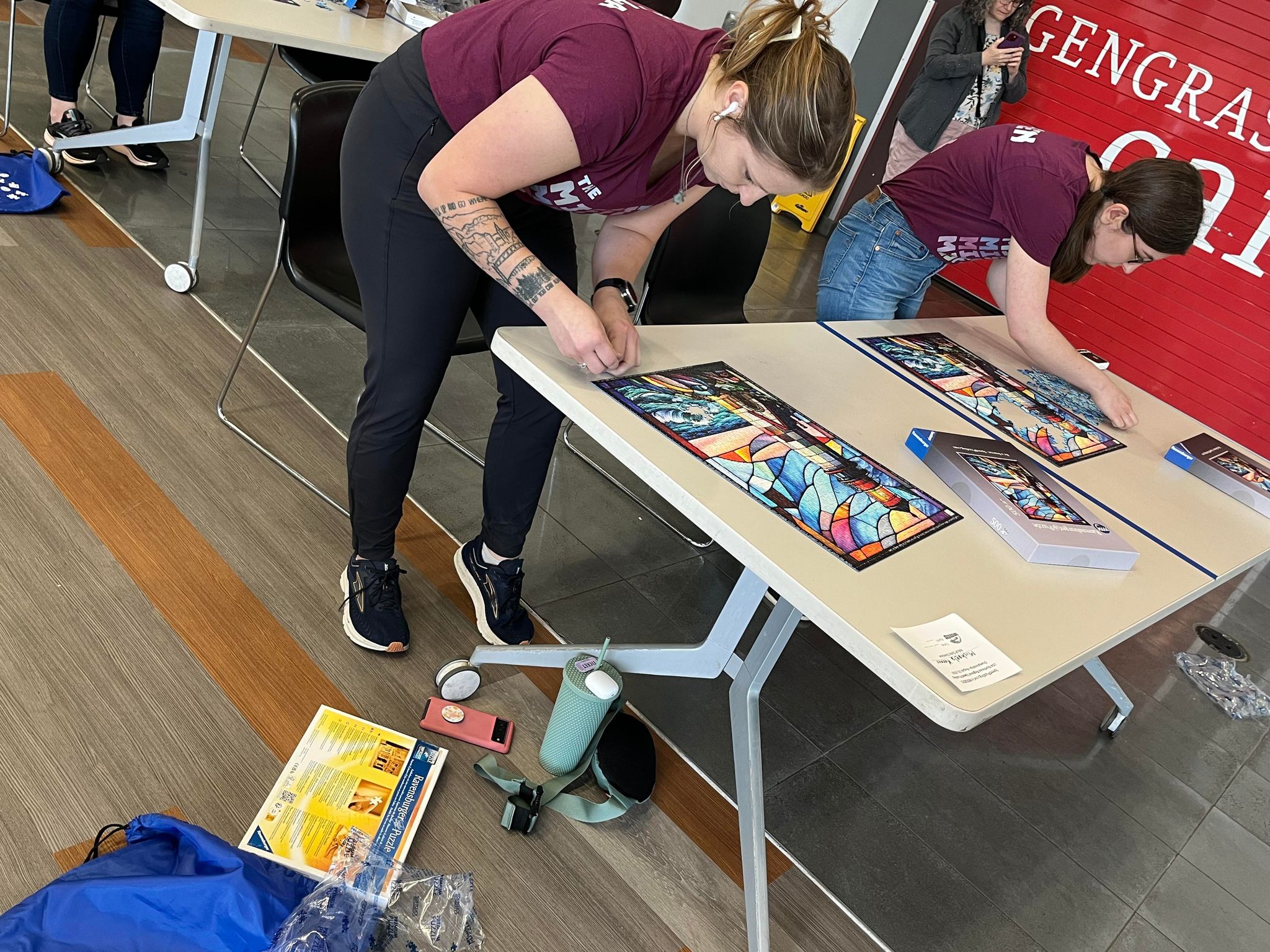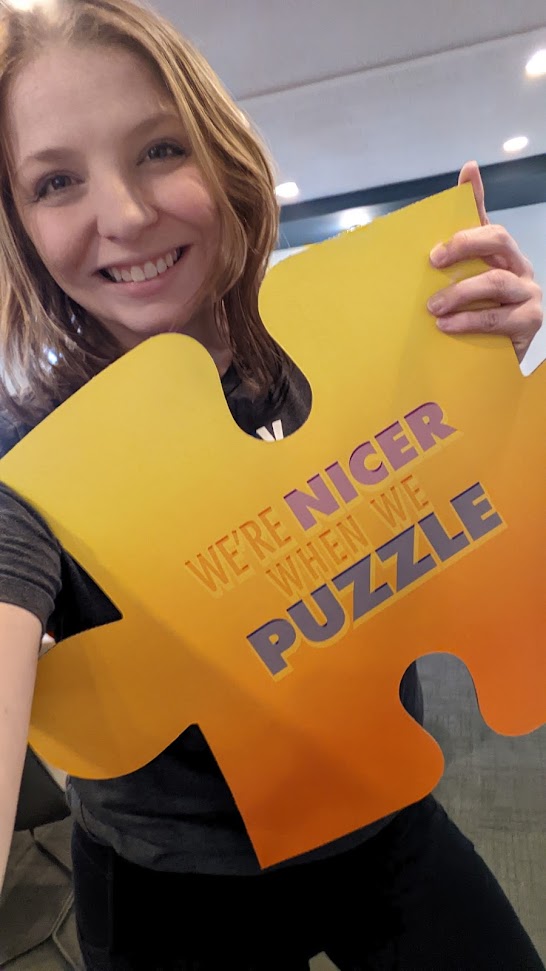PUZZLING BEHAVIOR: CHS Student Travels to Spain for World Championships
Sep 19, 2023
By Ryan Clark
CHS Communications Director
“I’ve been puzzling my whole life. But I'm from Northern Minnesota, so you spend a lot of time in the winter inside with not much to do — unless you want to read or puzzle …”
That’s Michaela Keener, explaining how she got into puzzling — or putting together jigsaw puzzles. As a child, she and her family would spend cold days sitting inside for hours, working out where all the pieces would go. She enjoyed it.
In 2016, Michaela and her sister participated in the 4-H Duluth Puzzle Derby, a competitive jigsaw puzzle contest held in Duluth, Minn. Everyone gets the same puzzle, and they race to see who can finish it the fastest. They took third place.
She kept working at it.
“In 2019 we took third for teams again, and then first for pairs, and then I took second in the 100-piece individual sprint,” Michaela said. “Then they asked the two of us who’d gotten first and second place in the sprint to do it again — the same puzzle, we’re just doing it again. And I blew the girl out of the water — I knew where every piece went because I have a memory for puzzle pieces.”
In a bit of a perfect storm, her team (made up of herself, one of her sisters, her mom, and the team captain, Amber) won their division at the St. Paul Winter Carnival — the largest team speed puzzling event in the country. Michaela then started an Instagram account to keep track of her puzzles.
And the world changed, as the pandemic came to America. Puzzling, once again, became the thing to do when stuck indoors. Michaela fell into an influencer position, reviewing puzzles, creating events for the community, and writing blogs. She was well known throughout the community.
Capital of Puzzling
Then again, you may know Michaela for another reason. You may know her as a student here in the College of Health Sciences, a doctoral candidate in the Rehabilitation and Health Sciences PhD Program. Others may know her as our Equestrian Athlete Initiative Research Administrative Coordinator in the Sports Medicine Research Institute.
Few know that right now, Michaela has traveled to Spain for the first time to take part in the 2023 World Jigsaw Puzzling Championships.
 That’s right, for one long weekend every year (this year it's Thursday through Sunday), the sunny city of Valladolid, Spain, turns into the capital of puzzling. Pro-puzzlers go head-to-head, chasing time and competing against each other in a heated race to crown the best puzzler of the world.
That’s right, for one long weekend every year (this year it's Thursday through Sunday), the sunny city of Valladolid, Spain, turns into the capital of puzzling. Pro-puzzlers go head-to-head, chasing time and competing against each other in a heated race to crown the best puzzler of the world.
There are three categories: Teams, pairs, and individuals. There are four days of non-stop puzzling. There is only one champion.
Michaela will see exactly how good she is.
‘A Dopamine Boost’
Of course, you have to be pretty talented to make it this far. Her fastest time ever completing a 500-piece puzzle is just over 31 minutes. She averages about 45. But that doesn’t mean she has a perfect memory.
“I don’t have a photographic memory, but I’m definitely a visual learner,” she said. “I also have late, adult diagnosis of ADHD.
“We've talked within the puzzle community,” she continued. “There's a lot of us with ADHD diagnoses, and every puzzle piece you get right is a dopamine boost. So, you just want to keep going and keep going.”
When the weekend is done, she’ll know just where she ranks in the world (on one website she sits at No. 763). Still, no matter what, she’s getting to travel to Spain to puzzle.
And there is a mantra she says, one that seems to be fitting — get it? — for puzzling, as well as for life.
“We’re just going to do the best we can,” she said. “One piece at a time. One piece at a time.”
